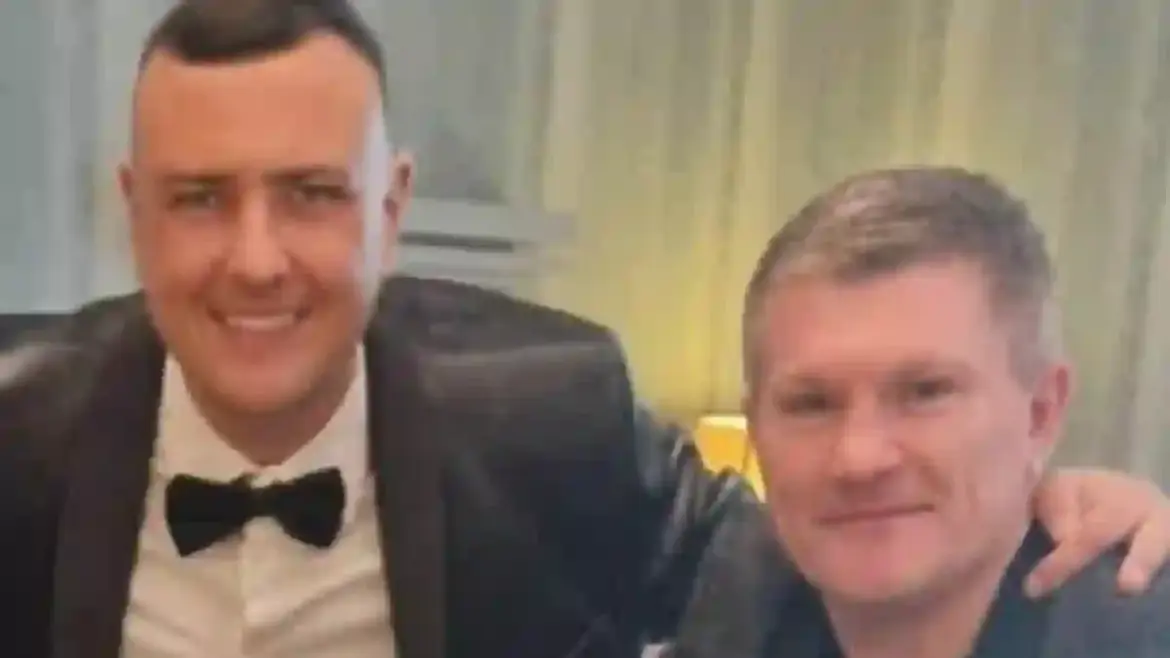The boxing world was left reeling after the tragic news that Ricky Hatton, the former world champion known as “The Hitman,” was found dead at his home in Hyde, Manchester, aged 46.
Those close to him say he had been battling both grief and physical injuries, alongside long-standing struggles with mental health and addiction.
Heartbreak Following Friend’s Death
In the days leading up to his own death, Hatton had attended the funeral of his close friend David Leigh, who died by suicide in August.
Ricky publicly shared his sorrow on Instagram, writing, “I wish you could have reached out to us mate. See you shortly.”
The loss weighed heavily on him, compounding existing personal struggles.
Injury Concerns and Upcoming Fight
Ricky had been preparing for a return to the ring with an exhibition fight scheduled in Dubai in December against UAE fighter Eisa Al Dah.
Friends reported he had joked about his age and mentioned an elbow problem during his last conversation at the gym, but he seemed himself at the time.
“Rushwin Dortley is running around a nearly empty pitch, under close supervision from physiotherapist Phumzile Ngobese,” Kaizer Chiefs announced on 15 July.
“He alternates between jogging and increasing his pace as he gradually returns to full training.”
Manager Finds Hatton at Home
Concerned loved ones raised the alarm when Hatton failed to appear at a boxing event in Manchester.
His long-time manager Paul Speak, who had been by his side for decades, found Ricky’s body on Sunday morning.
BBC commentator Steve Bunce described their bond as “one of the closest in sport,” highlighting the depth of trust and friendship between the two men.
A Life Marked by Triumph and Struggle
Hatton’s career was legendary. He remained undefeated for 43 fights and captured titles at light-welterweight and welterweight.
Known for his relentless style and action-packed bouts, he became a fan favorite in the UK and beyond.
Yet outside the ring, he faced deep challenges. Following defeats to Manny Pacquiao in 2009 and Floyd Mayweather in 2007 and later years, Hatton struggled with depression, addiction, and suicidal thoughts.
He admitted to telling himself he would “drink and drug himself to death” during his darkest times.
Advocacy and Mental Health Work
Despite his battles, Hatton became an advocate for mental health awareness, especially in boxing.
After publicly seeking help for cocaine addiction and alcohol dependence, he worked to support other fighters, sharing his experiences to prevent them from making the same mistakes.
Family Pays Tribute
Hatton’s parents, Carol and Ray, expressed heartbreak over their son’s death:
“Richard was so much more than a world champion. To us he was simply ‘Richard’, our son.
A loving father, grandfather, and brother, and a true friend to many.
His kindness, humour and loyalty touched everyone who was lucky enough to know him.”
The outpouring of support from fans, fellow athletes, and celebrities has been overwhelming, reflecting the broad impact Ricky had both in and out of the ring.
Remembering a Champion
Wayne Rooney and other sports stars led tributes, recalling Hatton’s incredible matches, including the legendary trip to Las Vegas where 35,000 British fans followed him to see his fight against Mayweather.
Despite the highs of his career, the greatest battles Hatton faced were always within himself, and his openness about these struggles has left a lasting impression on fans and the boxing community.
